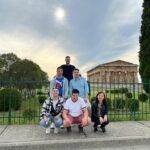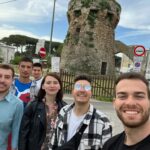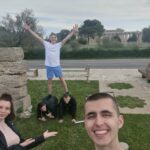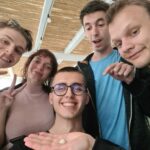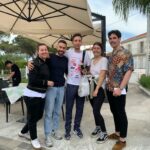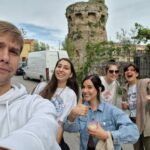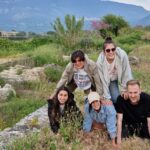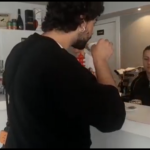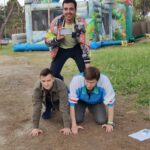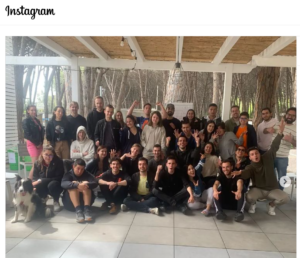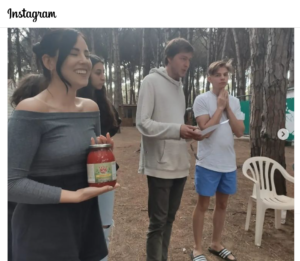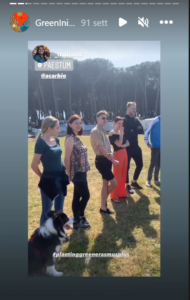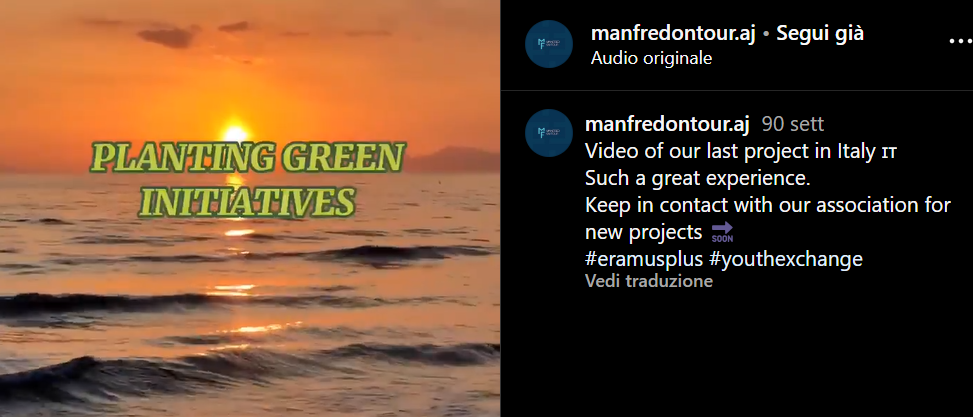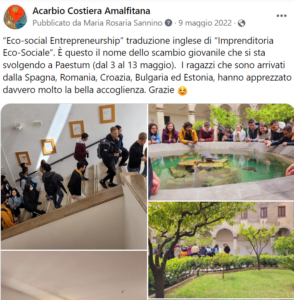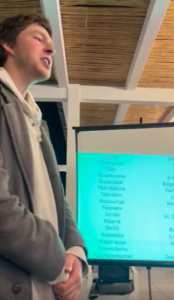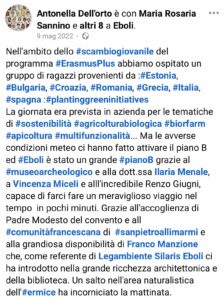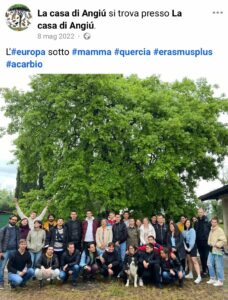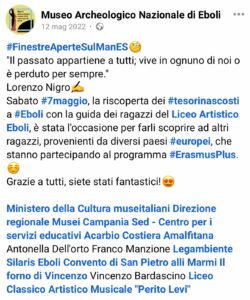The project “Planting Green Initiatives” was an ERASMUS+ mobility youth project that took place in Paestum (SA), Italy from May 3rd to May 13th 2022.
The partner organisations of the project were Asociata di Tineri din Ardeal (Romania), Sdruzhenie Natsionalue Mladezhka Karta (Bulgaria), Eesti people to people (Estonia), Ludbreška udruga mladih entuzijasta (Croatia), Asociación Juvenil Manfred on Tour (Spain) and ACARBIO (Italy).
ACARBIO designed this project to highlight the importance of social and entrepreneurial competencies combined with the ongoing ecological movement. The project advocated participants to have a more confident attitude-mindset, develop new work perspectives and support ecological movements in their future.
In order for the participants to achieve results in a practical way, the young people discovered step by step basic entrepreneurial elements and how to apply them for their own visions (learn about and develop business models, how to present them in the market communication…).
The key objectives were: discovering and adopting an entrepreneurial mindset, raising awareness of how eco-social visions in entrepreneurship can improve civic skills, creating six different business models with social or ecological missions, sharing good practices and methods with the other participants, developing intercultural awareness and competencies.
At the same time, the activities of the project also consisted of many opportunities for cultural exchange and experience sharing of local excursions to get to know exemplary initiatives.

The first day all participants, coming from the partner countries(Romania, Bulgaria, Estonia, Croazia, Spagna e Italia), started the project with a treasure hunt to get to know the city and the local community as well as to get to know each other. This was also a useful activity to create and strengthen the teams that worked together later on the project.
On the second day, the teams presented their research on ecosocial entrepreneurship in their respective areas with the identification of associated issues and needs, along with additional Team Building activities.
During the next days, following the program, participants explored entrepreneurship through a case study focused on the ACARBIO initiative “Re Fiascone”. The case study of Re Fiascone served as a practical and engaging learning experience, providing them with valuable insights and knowledge, letting them understand the complexities of entrepreneurship using real-life examples.
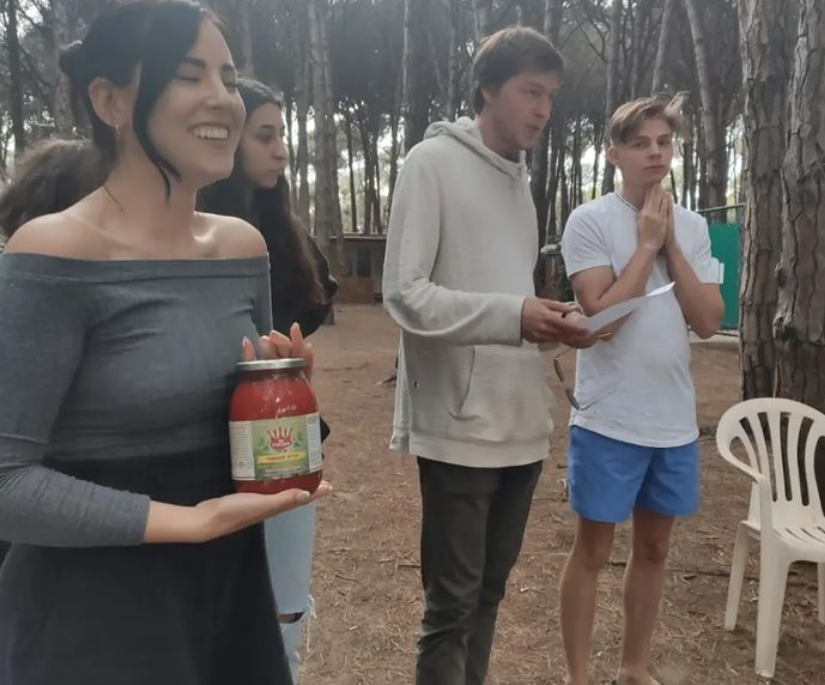
Along these lines a crucial part of the project included local trips to explore ecosocial entrepreneurial activities, such as visiting the ecofarm “Antonella Dell’Orto” as a sustainable entrepreneurship example. Additionally, the visit to the protected area “Oasi of Legambiente” was also significant, offering a unique opportunity for participants to witness environmental conservation and enrich their knowledge of sustainable initiatives.
To be able to understand how international markets work, participants played The Coffee Chain game. This game puts players in the positions of people who are involved in the coffee trade. This was useful to think about what is involved in world trade and to think about issues of global justice.
In the next phase participants were introduced to the Business Model Canva. This model gave them a visual representation of how a company creates, distributes and captures value for its customers. This step was essential because then the team had to start to understand how to create their own model. In fact in this step of the project the preparation for a start up competition began. The teams learned how to choose the name, logo, video and pitch of their business plan. After the preparation, during the last days of the project all teams had training for pitching and public speaking to be able to present their eco-social business plan in front of a small jury.
All the participant teams at the end of the project presented their eco-social business plan, some presented it with a power point, some with an oral presentation and some with photos and examples.
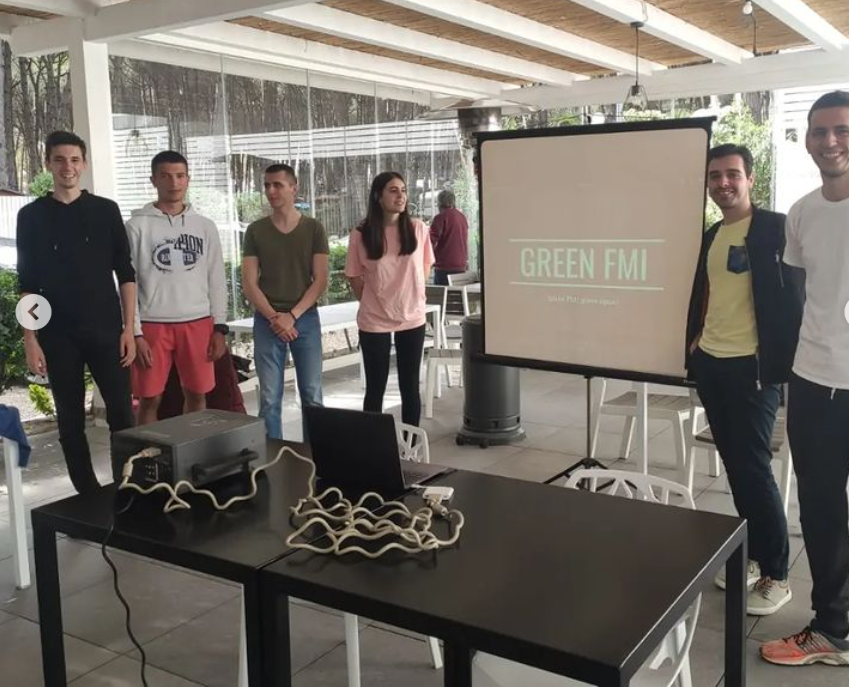
Certainly, another integral aspect of the project was the vibrant cultural exchange. Each evening, participants actively organized international nights, providing everyone with the opportunity to explore and appreciate the diverse cultures within the project.
RESULTS
Start up competition:
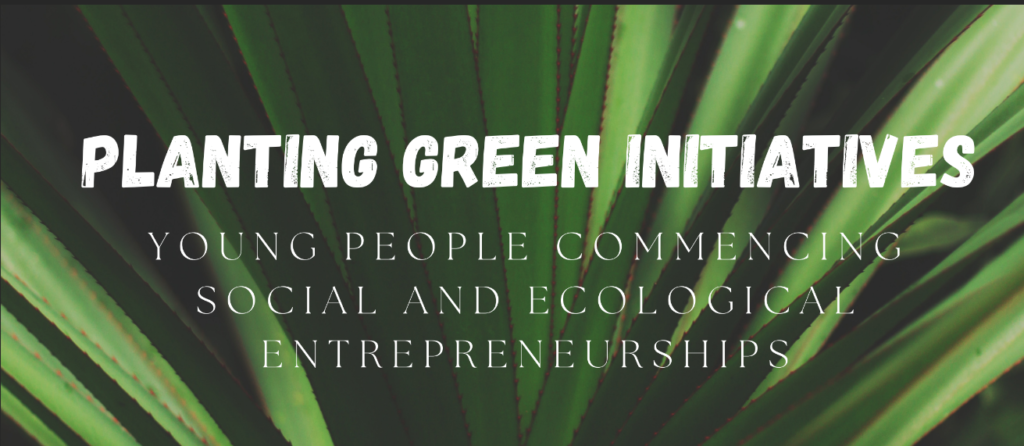 Tool kits:
Tool kits:
- Social Business Model Canvas for template
- Social Business Model Canvas Re Fiascone example
- Coffee Chain Game
LOCAL PRESS:
“Planting new Initiatives” Blog CieloMareTerra
SOCIAL MEDIA:
Instagram:
Facebook:

